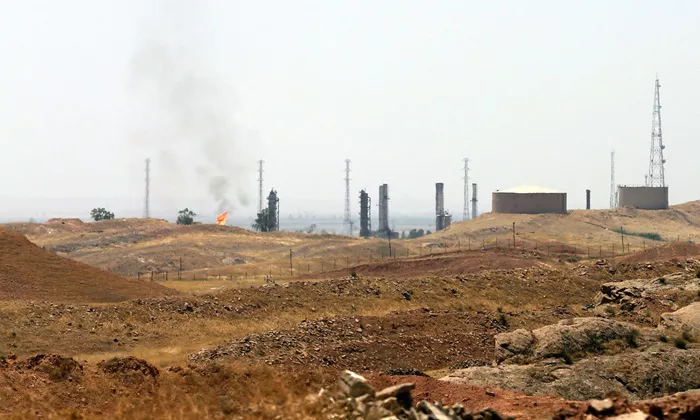Russia is set to resume its pivotal oil and gas operations in the semi-autonomous Kurdistan Region of Iraq (KRI), as confirmed by Russian Energy Minister Sergei Tsivilev. This development follows a period of relative inactivity since 2017, when Moscow’s energy activities in the region played a central role in its broader geopolitical strategy, leveraging cheap oil and gas supplies while expanding its influence in the Middle East.
From 2017 until the ousting of Syrian President Bashar al-Assad, Russia’s energy operations in the KRI were integral to its strategy in the region, extending influence over Iraq, Syria, and the broader “Shia Crescent” of power. Moscow’s efforts were further solidified by its alignment with China, as both countries capitalized on the U.S.’s 2018 exit from the Iran nuclear deal (JCPOA) to gain influence in the region. However, Russia’s setbacks in the 2022 invasion of Ukraine, coupled with the removal of al-Assad with Western backing, have posed significant challenges to its ambitions in the Middle East. In light of these setbacks, Russia’s move to restart its energy operations in the KRI is seen as a high-stakes attempt to regain its foothold.
Russia’s Strategic Position in the KRI
Russia enters the Kurdistan region with substantial leverage. Following the 2017 Kurdish independence referendum, which saw over 90% of the KRI’s population vote for independence from Iraq, Moscow capitalized on the ensuing instability. Rosneft, Russia’s state-controlled oil company, secured significant stakes in the KRI’s oil sector, including a $1.5 billion financing deal with the Kurdistan Regional Government (KRG), an 80% interest in five major oil blocks, and a 60% stake in the KRG’s critical oil pipeline infrastructure.
These investments were part of Russia’s broader plan to extend its influence southward, into the Federal Government of Iraq (FGI)-controlled regions, by negotiating new oil and gas exploration agreements with Baghdad. This strategy was aimed at resolving the longstanding disputes between the KRG and Baghdad over budget disbursements and oil revenues, which have been a source of tension since the KRG’s 2014 oil-for-budget deal with the FGI.
In exchange for financial support and operational control, Rosneft became a key player in the KRG’s oil exports, as well as a force pushing for the resumption of suspended oil flows following the 2017 referendum. Moscow also sought to challenge Baghdad’s rejection of Rosneft’s stake in Kurdish oil fields and pipelines, further consolidating its position within Iraq’s energy landscape.
Geopolitical Implications and Western Responses
Russia’s renewed engagement in the KRI comes at a time of shifting Western interests in the region. Following the ousting of al-Assad in Syria, Western nations, particularly European powers, have ramped up investments in the KRI. This is part of a broader strategy to counteract Russian and Chinese influence and encourage the KRG to sever ties with entities linked to Iran, Russia, and China.
A prominent example of this shift is BP’s recent $25 billion deal to develop major oil fields in the Kirkuk region, a deal that signals a strategic alignment with Baghdad and the KRG, further isolating Russia and China’s energy interests. Additionally, the U.S. and Israel are focusing on the KRI as a base for ongoing operations against Iran, underscoring the strategic importance of the region.
On the other hand, Russia and China are working to undercut Western influence by tightening control over the KRI’s oil exports and reducing the budget transfers from Baghdad to the KRG. Russia’s ultimate objective is to position Iraq as a unified country under Baghdad’s control, effectively diminishing Western power in the Middle East. This goal was explicitly outlined by Iraqi Prime Minister Mohammed Al-Sudani, who reaffirmed the government’s commitment to a unified oil law that would govern all oil production and investments within both the FGI and KRI.
Energy Potential of the KRI
Beyond the geopolitical struggle, the KRI’s vast oil and gas potential remains a critical factor in Russia’s renewed engagement. The region is home to some of Iraq’s most promising oil fields, with estimates placing proven reserves at up to 45 billion barrels, far surpassing earlier projections. Furthermore, the KRI holds significant natural gas reserves, with estimates of 200 trillion cubic feet, approximately 3% of the world’s total.
The KRI’s underexplored reserves provide a high potential for future development, particularly as exploration activities in the region continue to increase. Despite challenges such as frequent sabotage of pipelines, the KRG has invested heavily in infrastructure, including a new pipeline aimed at boosting exports beyond the 1 million barrels per day threshold.
As Moscow seeks to expand its energy presence in the KRI, it finds itself in direct competition with Western and regional powers for control of the region’s energy resources. The outcome of this energy and geopolitical contest will have significant implications for Iraq’s future, as well as for the broader dynamics of Middle Eastern power.
In conclusion, Russia’s decision to resume oil and gas operations in the KRI is not just a business move but a critical maneuver in the complex geopolitical landscape of the Middle East. As Moscow navigates its position between the KRG and Baghdad, it faces a challenging and high-risk game where energy, influence, and regional alliances are all at stake.

